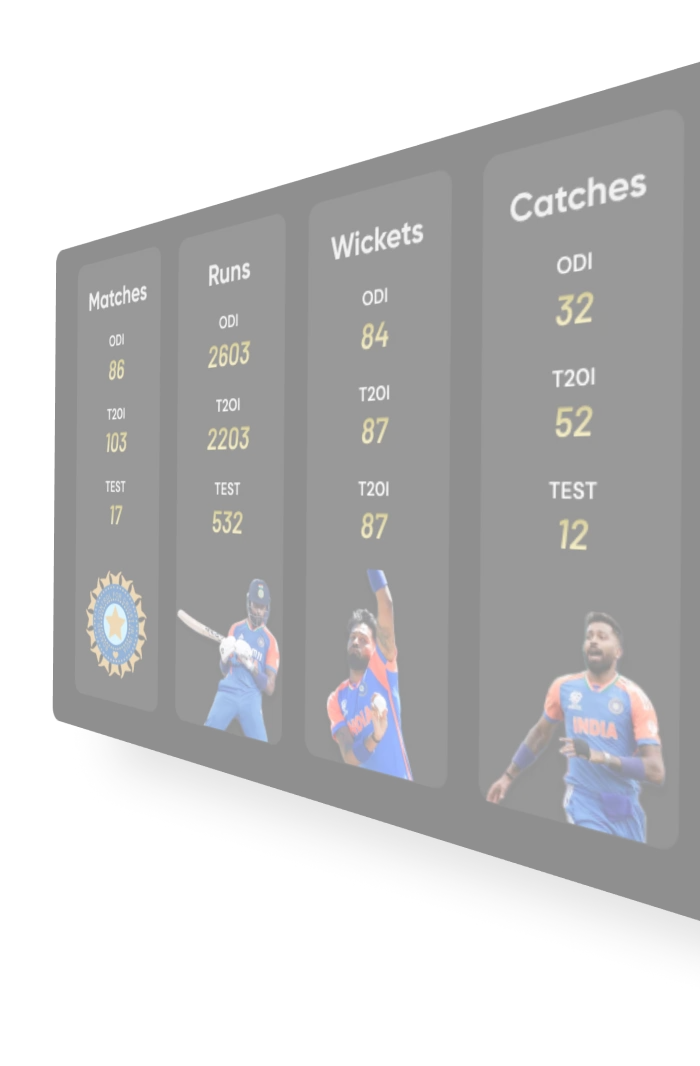
Table Of Contents
South Africa dominates this list with four entries - 30 (1896), 30 (1924), 35 (1899), and 36 (1932), which reflects their early struggles against England and Australia on seaming pitches. While New Zealand appears twice (26 in 1955 and 42 in 1946), and Australia (36 in 1902), India(36 in 2020), Ireland (38 in 2019), and the West Indies each appear once.
These collapses often stem from exceptional bowling like Wilfred Rhodes’ 7/17 for England or Josh Hazlewood’s 5/8 for Australia, and the recent Stark’s fastest five-wicket haul in history. The effect times fold when combined with challenging conditions, like damp tracks or swinging English summers.
Each low score tells a story of pressure, skill, and sometimes sheer misfortune, reminding us that Test cricket’s beauty lies in its capacity for both triumph and unfortunate failure. For fans, these moments are as memorable as centuries, cementing Test cricket’s unpredictable drama.
The list started with New Zealand and ended with New Zealand’s 42, the lowest innings score in the Test. In 1946, while playing against Australia, the Kiwis recorded their second-lowest total in cricket history, 42 runs from 39 overs at the Basin Reserve in Wellington. Bill O’Reilly’s 5/14 and Ernie Toshack’s 4/12 overwhelmed New Zealand. The match highlighted New Zealand’s struggles against Australia’s experienced bowling attack, with the innings lasting 39 overs on a challenging pitch.
In the ninth position, Ireland is the team with the lowest innings total recorded in Test cricket history. In 2019, Ireland scored only 38 runs from 15.4 overs against England at Lord’s, London. It was the maiden Test of Ireland, which turned out to be a disaster as Chris Woakes and Stuart Broad shared all 10 wickets. Tim Murtagh’s 5 wickets for Ireland had earlier bowled England out for 85, as Ireland chased a modest target but folded in 15.4 overs.
Then comes India on the list of the top 10 lowest scores in the Test, with 36 all out against Australia at Adelaide Oval in 2020. This was the lowest innings total in the Test recorded in modern cricket until West Indies broke that down and positioned themselves at the second number. India’s lowest-ever Test score came in a day-night Test, with Josh Hazlewood (5/8) and Pat Cummins (4/21) running through the batting order. No batsman reached double figures; Mayank Agarwal’s 9 was the highest score. However, India bounced back to win the series 2-1, a remarkable turnaround.


On the number seven, Australia is marked for the unwanted feat of the lowest Test score in cricket history. In 1902, at Edgbaston, playing against England, the Aussies failed to showcase their batting prowess and the whole squad all out on 36 runs from 23 overs in the first innings. Wilfred Rhodes’ 7/17 dismantled a strong Australian batting line-up, including Victor Trumper and Clem Hill, during the 1902 Ashes. Extras (8) were the top scorer, and despite the collapse, Australia salvaged a draw due to time constraints, showcasing their resilience.
In 1932, South Africa recorded their fourth and Test cricket history’s sixth lowest inning total of 36 runs against Australia. In the first innings of the match, South Africa only scored 36 runs from 23.2 overs and were bowled out by the Aussies at the Melbourne Cricket Ground. Bert Ironmonger’s 5/6 was the standout performance in a match where South Africa struggled against the hosts on Australian soil. This collapse came during a series where South Africa was outclassed, losing 5-0.


The fifth-lowest total in Test cricket history is also recorded by South Africa, 35 runs from 22.4 overs against England at Newlands, Cape Town, in 1899. South Africa started strong as they bowled England out for 92 in the first innings. The celebration falls short after their collapse to 35 in the second innings. Schofield Haigh (6/11) and Albert Trott (4/19) led England’s bowling attack, which contributed to the triumph by 210 runs over the Proteas. This match marked South Africa’s third appearance in the top five lowest Test totals.
Third third-lowest Test total in cricket is named after South Africa, recorded 30 in 18.4 overs against England at St George’s Park, Port Elizabeth in 1896. In this match, no South African batsman reached double figures, with extras (6) being the top scorer. England’s George Lohmann (7/38) and Arthur Gilligan (6/7) dominated, South African team in only their third Test match.


Once again, South Africa is topping the list of the lowest test innings totals with 30 runs from 12.3 overs against England. Only this time, Proteas recorded this unwanted feat on English soil at the Edgbaston stadium in 1924. This is also the shortest completed Test innings in history, lasting just 12.3 overs with no batsman reaching double digits. Arthur Gilligan (6/7) and Maurice Tate (4/12) dismantled South Africa, who remarkably recovered to score 390 in their follow-on innings but still lost heavily.
The West Indies is the recent entry in the list of the top 10 Lowest innings totals in Tests. While playing against Australia, the West Indies bagged only 27 runs for the second innings in just 14.3 overs at the Sabina Park, Kingston in Jamaica. This is the second-lowest Test total and the lowest since 1955. Mitchell Starc’s 6/9, including the fastest five-wicket haul in Test history (15 balls), and Scott Boland’s hat-trick decimated the West Indies, with seven batsmen scoring ducks, a Test record for a single innings.
With 26 all out, New Zealand recorded the lowest test score in cricket history. In 1955, playing against England at Eden Park in Auckland, the Kiwis’ whole team bowled out on scoring a mere 26 runs. Only Bert Sutcliffe (11) reached double figures for New Zealand. The collapses occurred in just 27 overs by the English bowlers Bob Appleyard (4/7) and Brian Statham (3/9). England won by an innings and 20 runs.
India’s lowest Test score remains 36 all out against Australia in 2020, a dramatic collapse in a day-night Test that became infamous but didn’t define the series, as India won 2-1. India appears only once in the all-time lowest Test totals (36, tied for 6th), unlike South Africa (four times) or New Zealand (twice).
In December 2020, in the second innings of the first Test of the 2020-21 Border-Gavaskar Trophy, India scored their lowest Test score of 36 all out against Australia at Adelaide Oval in December. This 36 tied Australia’s 1902 collapse for the seventh-lowest Test total and was India’s worst, undercutting their previous low of 42 (vs England, 1974). Remarkably, the defeat didn’t define the series as India won the series 2-1 under the leadership of Rahane and Shubman Gill’s emergence, a historic chase at Brisbane.
However, it is not the lowest score in the Test by India as several collapses occurred on seaming or bouncy pitches, often against pace-heavy attacks like Australia, England, South Africa, West Indies, and New Zealand.






More Links